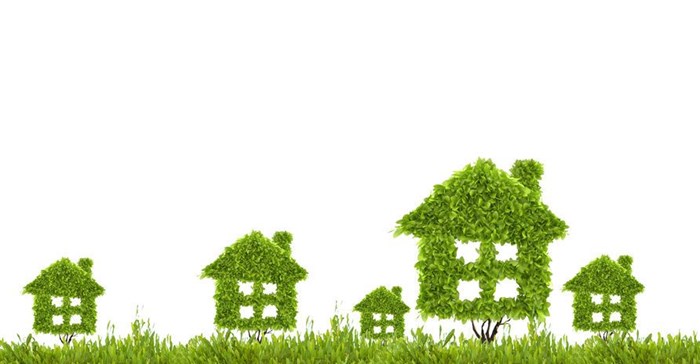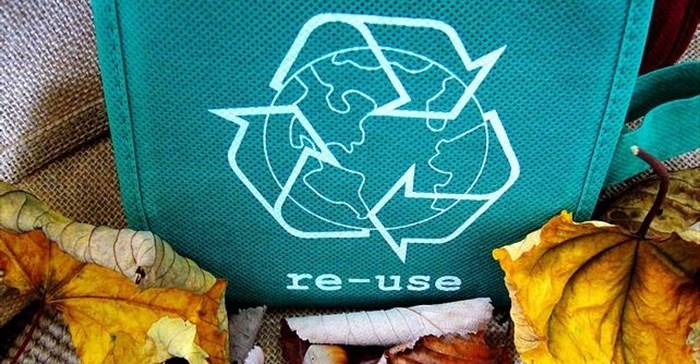#WorldEnvironmentDay: Are South Africans living eco-friendly enough?

As South Africans, we can be proud of the steps that various large organisations are taking, as highlighted by the list of nominees in the Eco-Logic Awards 2017, with many SA communities leading the eco-way. However, despite the efforts of larger communities and organisations, we must ask ourselves, are we as individuals, doing enough? According to The Global Footprint Network, we are in an ecological overshoot, with the current global population being three times the sustainable level. This means it takes the earth one year and six months to regenerate what we use in a year.
The small things
A recent survey done by local design and manufacturing studio, Love Milo, revealed that many people are still not aware of the small things they could do in their daily lives to lead an eco-friendlier lifestyle. Almost half surveyed, admitted to having only a ‘reasonable’ idea of how to change their habits, while more than half (54%) said they are only sometimes conscious of their eco-efforts.
The homeware retailer creates nature-inspired designs (e.g. ants walking up a tea cup and birds soaring through a sugar pot), placing emphasis on sustainability in their production process. Their aim is to encourage people to interact more with nature, as well as raise awareness around being more eco-conscious in their daily lives.
“Most of the feedback received from the survey participants was that they were forced to think about their eco-efforts, which sadly, they felt were not up to scratch. Although, it’s great to read about amazing eco-initiatives that are being introduced, or how a new product is 100% eco-friendly, each of us as individuals needs to make changes in how we preserve the environment,” says Love Milo designer Nicki Ellis.
Recycling falls short
Something seemingly simple like recycling fell short as being the one thing we all assumed most people were already doing. Only 30% of the respondents said they always recycle, with ¼ of the respondents citing that their neighbourhood does not make recycling easy. In fact, most of the respondents indicated that more could be done in their community to make recycling easy. “It can be something as simple as not having access to a recycling facility like drop-off points at a local establishment or residential or commercial building blocks not having designated recycling bins that can keep people from making the effort,” says Ellis.

Eco-efforts at home and the office
When asked to rate the eco-friendliness of their home, most of the respondents rated their home as ‘good’ while they rated their office environment as only ‘reasonable’ in their eco-efforts, reporting that ‘more could be done’ in this area. Ellis believes that being eco-conscious should not stop at your front door. “Considering we spend almost 70-80% of our time away from home at the office, it’s not only the responsibility of the organisation (big or small) to make eco-efforts common practice in the workspace, but it’s also our responsibility at an individual level.”
Saving resources
Saving water came out as the top focus area for eco-efforts, followed by reducing waste. Saving energy was the lowest ranked focus area, with 83% surveyed admitting that only some of their appliances in the home are energy-efficient. When it comes to making purchasing decisions, 58% said they sometimes consider the eco-status of an item before purchasing, while only 30% said they always consider this before buying a product.
Inspiring appreciation with eco-conscious design
According to Ellis, the journey of awareness begins with a true appreciation and gratitude for the earth. World Environment day 2017 has chosen to amplify the message #WithNature to reconnect people with nature, which echo’s the philosophy and driving force of Love Milo designs. “Beautiful things inspire a person, so why not make it a part of everything we do. When we drink our morning coffee, why not incorporate natural beauty into this, and start the day off with an appreciation for nature’s splendor and sacredness. It’s this appreciation that will make the difference.”
Top tips to help you lead an eco-friendlier lifestyle:
• Where possible, borrow, share and re-use instead of buying
• Recycle your electronics responsibly, i.e. don’t just throw away in the bin. E-waste contains mercury and other toxins which are a growing threat to the environment
• Invest in higher quality products that last longer, even if you pay a little more upfront
• Make your own cleaning supplies with things like baking soda, vinegar, and lemon
• Stay informed. Check out some of the world’s leading eco-bloggers who share their tips daily on leading a more environmentally sustainable lifestyle.
• Skip the plastic bottles, instead use a reusable water bottle
• Take your own mug to the coffee shop























